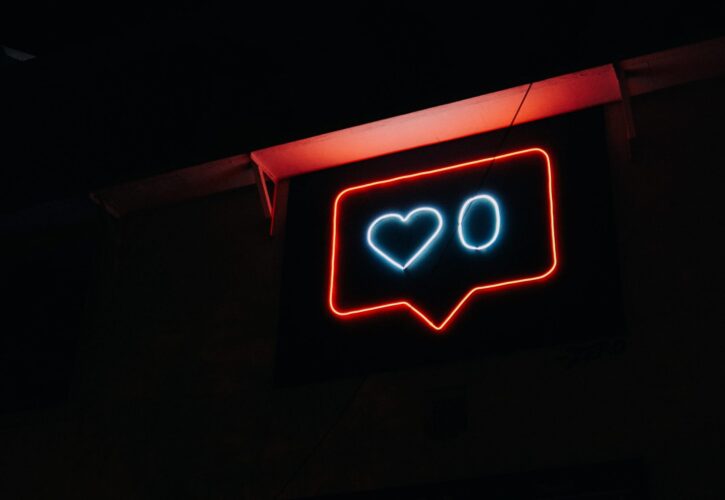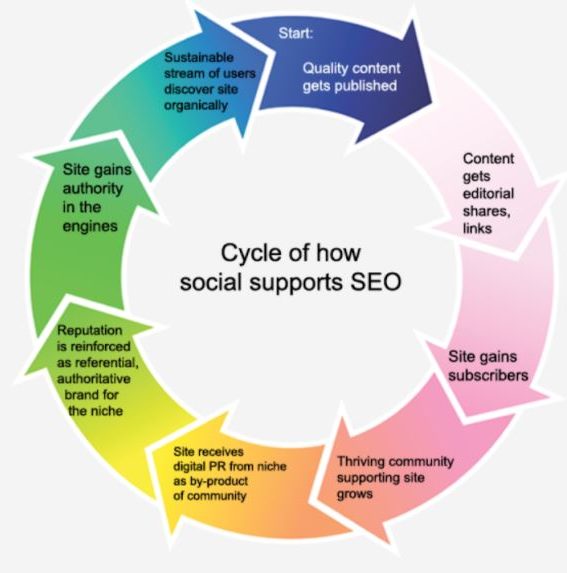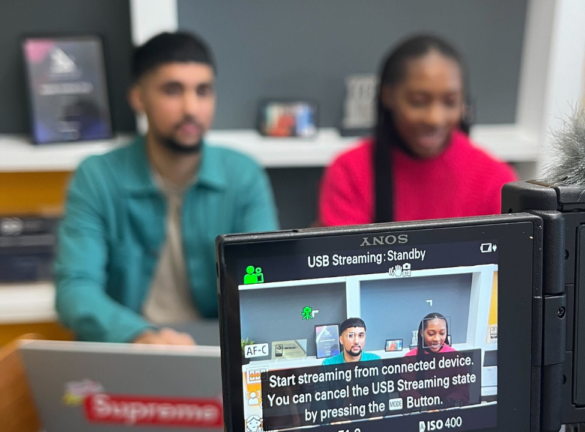
Social Media and SEO
There is a common assumption when discussing digital marketing that Social Media directly contributes to a site’s SEO, but how true is this?
The debate about the influence of Social Media on search ranking is long-standing. However, Google has officially declared Social Media is not an element of SEO ranking with John Mueller (Senior Webmaster Trends Analyst at Google) stating back in 2015 that social signals do not directly impact a site’s rank (Search Engine Journal). Arguably, this is likely to be because Social Media followers can be bought and likes and comments are recognised as vanity metrics.
It is important to note Social Media signals however are a key ranking factor within the Bing algorithm.
Bing states that they use social shares to understand a page’s popularity and make clear social signals are a key ranking factor (Search Engine Journal).
Google = Treats Facebook and Twitter pages like any other indexed pages.
Bing = Social signals are a key ranking factor. Search results will show you your Facebook friends’ and Twitter followers’ ratings of different businesses.
For the purpose of this blog post, we focus on the relationship between Social Media and SEO for Google since it is the most widely used search engine (between June 2019 and June 2020, Google saw 91% of the world’s search share, with Bing coming in second with 2.7% (Adzooma0).
Does Social Media have any impact at all on SEO?
Social Media can impact SEO but the impact happens indirectly because the links a site shares across various Social Media platforms and the practice of social sharing helps with ranking performance. Social sharing helps a brand to acquire high-quality backlinks across numerous Social Media sites and these backlinks help to boost the brand’s overall page authority (HubSpot).
Social Sharing = the practice of sharing content from a website on a social media site or application
This, therefore, means Social Media only ‘directly’ impacts a brand’s visibility in Google search when:
- Individual Social Media posts or pieces of content show up in Google on their own because they rank for the brand name or keywords organically.
- Google recognizes that a piece of content on a Social Media platform is relevant to search results and includes it in the index.
So how does Social Media Influence SEO?
Both SEO and Social Media correlate through social signals and these signals strengthen the factors Google does officially consider when ranking a site (Semrush). As a result, leveraging both SEO and Social Media strategies successfully can help brands gain traffic to their site from a variety of sources.
Social Signals = refer to a webpage’s collective shares, likes and overall social media visibility
When a brand’s post is shared further this not only increases visibility, improves traffic, but also helps to generate backlinks. Such signals notify Google that the brand’s content is credible and indirectly improves search rankings (Semrush).

What does the future of SEO & Social Media look like?
One trend to keep an eye out for is the impact of Influencer Marketing on SEO. Influencer Marketing has the potential to impact SEO through its strength in generating natural, high-quality backlinks to a site. We already understand that backlinks are crucial for rankings but not all kinds of backlinks can work, they need to be high-quality and this is where Influencers can really help (Wordstream).
Additionally, Social Media will help to leverage future SEO strategies through its ability to help with social listening for keyword research content ideation (Sprout Social). With voice search on the rise, natural language research is more important than ever for SEO.
Social Listening = the process of monitoring social media channels for mentions of your brand, competitors, product, and more.
Since spoken queries are much longer and harder to predict than typed queries, it’s harder for SEO experts to optimize content for voice queries. Social listening on Social Media will improve SEO experts’ understanding of voice-driven search behaviour because many Social Media users adopt a more casual tone on these platforms compared to a pre-thought search engine query.
Takeaways
Ex-head of Google webspam Matt Cutts clearly summarises why the relationship between both SEO and Social Media often gets muddled – it is often a case of correlation being confused with causation:
“There was an SEO that said, OK, we see a lot of links on Facebook and those are the pages that rank well. But that’s correlation. That’s not causation. Instead it’s probably that there’s something really awesome, and because there’s something awesome, then it gets a lot of likes on Facebook and a lot of people decide to link to it.” (Like Mind Media)
Therefore, the overall quality of a site’s content remains to be one of the most important search ranking factors today. Nonetheless, just because Google currently does not consider Social Media to impact or to be an official key ranking factor for the Google algorithm, this doesn’t mean that it never will! Social Media shows no signs of becoming less important and influential for both brands and users in the future.
Bibliography
Clement, 2020 – Social Media SEO: 7 Ways Social Media Can Improve Your SEO Results
Calik, 2020 – How to Use Social Media Buttons for SEO?
Bodnar, 2017 – The Complicated Relationship Between Social Media and SEO
2021 – The Top 10 SEO Trends To Drive More Traffic in 2021
Smarty, 2019 – How SEO can (and should) inform social media marketing
Tran, 2020 – What is Social Listening, Why it Matters, and 10 Tools to Make it Easier
2013 – How To Develop An SEO Strategy With Social Media Campaigns
5 Things You Need to Know About Social Media & SEO
McDowell, 2021 – How social media affects SEO 2021
Hurley Hall, 2019 – Social Media and SEO: Do Social Shares Really Matter for Ranking?
Barysevich, 2017 – 5 Ways SEO for Bing is Different from Google SEO
Logan, 2020 – Bing vs. Google: A Comparison.
2021 – Search Engine Market Share Worldwide
McCoy, 2021 – Social Signals Impact Rankings & 4 Other SEO Misconceptions





